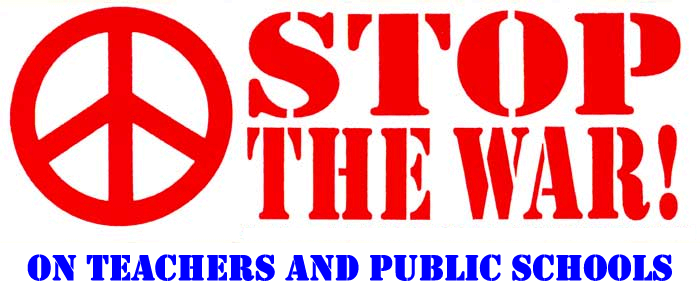The real problem isn’t teachers

In April, an appeals court in California upheld the state’s laws regarding teacher tenure, dismissal and layoffs by overturning a lower court’s earlier decision to scrap job-protection statutes in the highly publicized Vergara v. California case. The plaintiffs in Vergara were public school students backed by a school reform advocacy group called Students Matter, and they claimed that job protection laws for teachers are the reason that poor and minority children wind up with more ineffective teachers who are hard to fire. The court found that “the evidence did not show that the challenged statutes inevitably cause” the impact the plaintiffs claimed. Reform and anti-union activists have promised to continue the legal fight against teacher job protection laws that they say work against students.
Such legal challenges are just part of what many teachers consider to be a war on their profession by school reformers and policymakers who have attempted to “disrupt” public education with systems and programs that educators think rob them of their professionalism and hurt the learning process.
Teachers unions again made national news this week when the Supreme Court denied a petition from plaintiffs in Friedrichs v. California Teachers Association to rehear the case. A group of California teachers had challenged a law that they said violates their First Amendment rights by requiring them to pay dues to the state’s teachers union. California is one of about 20 states in which public employees are required to either join the union or pay a fee to support the union’s collective-bargaining activities — which support all workers, whether or not they are union members.
With this decision, it seems to be a good time to look again at how teachers are faring. Here’s a post about how and why teachers have become scapegoats for problems in public education and what should be done to change the dynamic. It was written by Alexander W. Wiseman, associate professor and director of the Comparative and International Education (CIE) program at Lehigh University’s College of Education. He has more than 20 years of professional experience working with government education departments, university-based teacher education programs, community-based professional development for teachers and as a classroom teacher in both the United States and East Asia.
By Alexander W. Wiseman
Recent U.S. education reform efforts — such as the Vergara vs. California lawsuit filed on behalf of nine students and similar suits in Minnesota and New York — point to teacher job protections negotiated by unions as a root cause of a troubling reality: unequal access to high-quality education. But this is at the least a distraction and at the most a purposeful misdirection of attention from the real problem.
Critics argue that the rules governing the hiring and firing of teachers, such as tenure, have the unintended consequence of burdening the most economically disadvantaged schools with the least effective or prepared teachers, thereby providing a sub-par education to the very students who need public education the most.
It does not take an expert to spot the absurdity of blaming the unequal distribution of highly The real problem isn’t teachers - The Washington Post:

